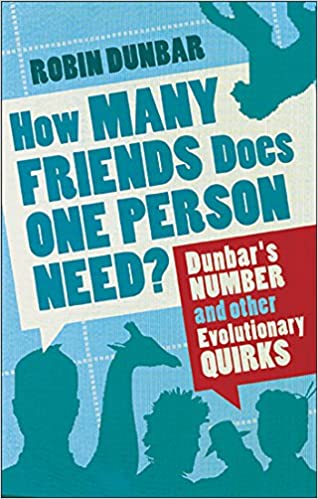
AT this pandemic-enforced time of alienation, disconnection, lockdown, social distancing, shielding and virtual gatherings when everyone’s gone to the Zoom, how topical for the York Festival of Ideas to host a talk on Friendship: Nature’s medicine. Online, of course.
At 8pm tonight, psychology professor and author Robin Dunbar, from the University of Oxford, will explore the psychological and neurobiological mechanisms involved in friendships and how they produce these remarkable effects as nature’s “little helper”.
“Like all monkeys and apes, humans are intensely social,” says the festival website. “Close relationships, whether family or friend, are our way of buffering ourselves against the stresses that life puts us under.
“In fact, loneliness has turned out to be the biggest killer. It turns out that friendships have a bigger effect on our quality of life, as well as our ability to resist and recover from illness, than almost anything conventional medicine can throw at us.”

Robin Dunbar is professor of evolutionary psychology at the University of Oxford, an Emeritus Fellow of Magdalen College and an elected Fellow of the British Academy.
His principal research interests focus on the evolution of sociality with particular reference to primates and humans. He is best known for the social brain hypothesis, the gossip theory of language evolution and Dunbar’s Number (the limit on the number of relationships that we can manage).
Among his science books are: Grooming, Gossip And The Evolution Of Language (1996); The Human Story (2004); How Many Friends Does One Person Need? (2010); The Science Of Love And Betrayal (2012); Human Evolution: A Pelican Introduction (2014); Human Evolution: Our Brains And Behaviour (2016), and Evolution: What Everyone Needs To Know (2018).
Online admission tonight is free but booking is required at eventbrite.co.uk/e/friendship-natures-medicine-tickets-105701357606.
Brought to you remotely by the University of York, York Festival of Ideas is full of ideas until June 14, gathered under the new umbrella of Virtual Horizons. For full details, visit yorkfestivalofideas.com/2020-online/.
